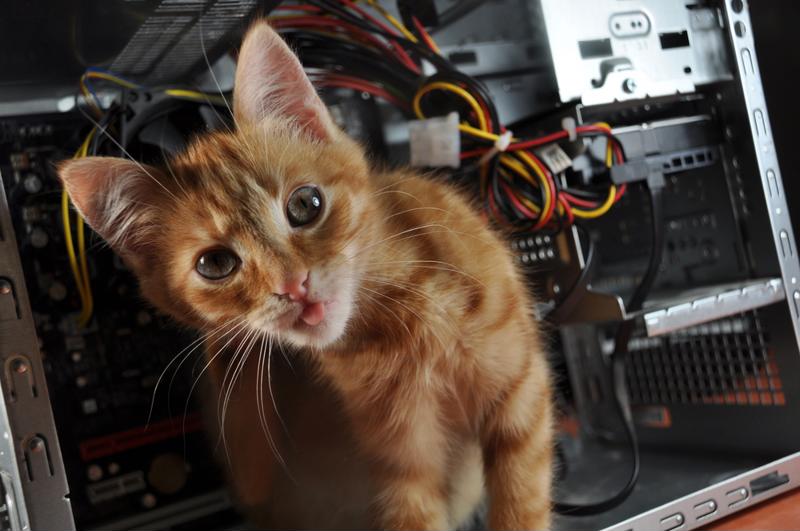Cumbersome storage water heaters can become hazards in a household. In Yakima, Washington, a curious cat found itself stuck behind a water heater that was wedged between two walls. The situation ended up with a happy ending as the cat was rescued, but could've proved more dangerous if the owner wasn't as perceptive.
"Pets for most people are family, too," Jeff Pfaff, Captain of the local fire department said to the Yakima Herald.
Keep your family pet safe by switching out troublesome storage water heaters for electric tankless water heaters.
Pet safety
The reason a cat got stuck in Yakima is because of how bulky storage water heaters are, and how inconvenient it can be to find a place to put them. The cat found its way into a small crevice that formed because the water heater was jammed into a corner of the basement. Basically, it could climb in, but not out. Besides the obvious risk of the pet dying, the situation could've sparked a fire, according to the Yakima Herald.
Storage water heaters won't be getting smaller anytime soon. In fact, they will only be growing larger in size, making it harder to find room for them in the future. This means that if you have a space specifically designed to house your storage water heater, you'll have to renovate it. This is because of the recently updated National Appliance Energy Conservation Act, which will require storage water heaters to be manufactured an additional 2 inches taller and 2 inches wider, to keep in accordance with the law.
 Switching to a tankless water heater means there's one less danger to worry about pets exploring.
Switching to a tankless water heater means there's one less danger to worry about pets exploring.If the Yakima homeowner had an electric tankless water heater, then the cat wouldn't have found a place to get stuck. Animals are curious, and often explore different areas of the house they've never been to. Electric tankless water heaters take one more worry off your mind about where they can hide, because the systems don't provide any place for the animals to do so.
Electric tankless water heaters are small enough to fit on any convenient wall, and can be used as a point-of-use product to cut down on the distance hot water has to travel, maximizing efficiency. The size of the system means there's no place for a cat to hide. Of course, homeowners shouldn't just take the size of the system into consideration. The benefits an electric tankless water heater provides are bountiful as well.
Benefits of switching
An electric tankless water heater is 0.99 energy efficient, which means it maximizes the energy used to run it. In comparison, storage water heaters often have a 0.55-0.65 energy efficiency, according to the National Association of Realtors. This is because storage water heaters often experience standby heat loss. Since the system stores water in a tank, over time the unused water will undertake a loss in temperature. The next time hot water is needed, the system heats the tank again, requiring double the energy for the normal amount of hot water.
"Tankless water heaters outlive storage by 5 to 10 years."
Electric tankless water heaters heat the water on-demand using thermo optical sensors. As the water is used and needs to be heated, the sensors quickly warm the water to the required temperature. This eliminates the need for a tank, or the excess use of energy, which puts money back in the homeowners pocket.
The Department of Energy reported that just by switching to a tankless water heater from a storage water heater, homeowners can save at the minimum $100 yearly on energy bills. This doesn't take into account the longevity the tankless system provides, 20 years to storage water heater's 10, or the federal rebates that are available for those who install electric tankless water heaters before 2016.
Switching to an electric tankless water heater can also help reduce the carbon footprint of a home, and give the house a green friendly designation should it ever be sold. Combining the system with solar panels only improves the savings that these point-of-use products bring.
Stop wasting energy on tepid water with potential hazards for your animals. Electric tankless water heaters provide more benefits with less of a risk than storage water heaters.

